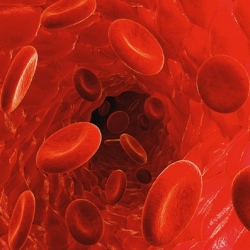
Researchers have dreamed of giving patients a vaccine that helps the immune system detect the tumors and wipe them out. But hundreds of attempts helped few patients. Now, a new approach that tailors a personalized vaccine to the mutated proteins in an individual’s tumor appears to have prevented early relapses in 12 people with skin cancer.
It also may have helped several others by boosting the power of a new type of cancer drug that uses a different mechanism to unleash an immune attack on the tumor.
“We’re in this very exciting, new moment” for personalized cancer vaccines, says Catherine Wu of the Dana-Farber Cancer Institute in Boston, whose team presented results last week at the annual meeting of the American Association for Cancer Research (AACR) in Washington, D.C. A second team has similarly encouraging data.
The two small studies, mainly designed to test safety and immune responses, are indeed “promising,” says Drew Pardoll of Johns Hopkins University in Baltimore, Maryland. But, he cautions, it is “way too early” to draw firm conclusions about whether the vaccines will extend the lives of cancer patients.
Whereas earlier, unsuccessful cancer vaccines usually targeted a single distinctive cancer protein shared among patients, these new ones contain multiple mutated proteins, or “neoantigens,” that are specific to an individual patient’s tumor. Giving patients a dose of their tumor neoantigens, which look foreign to the immune system, should help activate immune cells called T cells to attack the cancer cells.
A study published 2 years ago in Science suggested the strategy might work: It showed that a neoantigen vaccine stimulated immune responses in three advanced melanoma patients who had already received a cancer drug. But at the time researchers couldn’t say much about whether the vaccine would help curb cancer growth.
One new study was conducted in six patients with melanoma that had spread to their lymph nodes and sometimes other sites. The patients’ tumors had been removed surgically, but were likely to regrow. Wu’s team sequenced the DNA from each patient’s tumors and used computational methods to predict mutations that coded for neoantigens. Then they made each patient a personal vaccine containing about 20 of these neoantigens.
The researchers injected the vaccine under the patients’ skin periodically for 5 months. They had no serious side effects and showed “strong, potent T cell responses” specific to many of their vaccine neoantigens, says Wu, whose collaborator Nir Hacohen of the Broad Institute in Cambridge, Massachusetts, reported the results at the AACR meeting. All are now cancer-free up to 32 months later.
The two patients with the most advanced disease did relapse, but Wu’s team deployed an additional weapon: an immunotherapy drug called a PD-1 checkpoint inhibitor. These antibody drugs block receptors on T cells that tumors use to hide from the immune system. On their own, the drugs have vanquished tumors in people with certain cancers who otherwise had no hope. In metastatic melanoma they help up to 40% of patients, but in only 5% do tumors disappear completely. When the two relapsed patients in Wu’s study received a PD-1 inhibitor, their new tumors vanished.
Similar results come from an international trial using a vaccine developed by Ugur Sahin of University Medical Center of Johannes Gutenberg University in Mainz, Germany. The team injected RNA coding for up to 10 tumor neoantigens into the lymph nodes of 13 advanced melanoma patients whose tumors had been removed. Eleven remain cancer-free up to 26 months later, including two whose tumors reappeared, then shrank or were surgically removed, Sahin says. Another patient whose cancer returned received a PD-1 inhibitor and is also tumor-free.
Sahin’s and Wu’s results have been submitted for publication. Two of three patients from the first clinical test published 2 years ago are also in remission more than 2.5 years later, one after relapsing and then receiving a PD-1 inhibitor, says trial leader Gerald Linette of the University of Pennsylvania.
Pardoll and others caution, however, that it’s not possible to know whether neoantigen vaccines perform better than a PD-1 inhibitor alone without doing larger studies. Other questions remain about how best to design and deliver neoantigen vaccines. Right now the vaccines are costly and take months to make, which may be too long for some patients with metastatic disease.
Meanwhile, several biotech companies are launching trials combining neoantigen vaccines and checkpoint inhibitors for various cancers, including Neon Therapeutics in Cambridge, which Wu and Hacohen co-founded.
The Parker Institute for Cancer Immunotherapy in San Francisco, California, launched a year ago by Napster co-founder and biotech billionaire Sean Parker, is trying to figure out how to tailor the best possible vaccines through a competition. Thirty companies and academic groups will receive the same set of tumor samples from individual patients and will try to predict the best neoantigens.
The Parker Institute and another sponsor will test them with lab assays, then feed back the results so participants can improve their algorithms. Says Parker Institute Vice President for Research Fred Ramsdell: “At the end, we’ll have a good idea of how to correctly pick neoantigens for a vaccine.”
